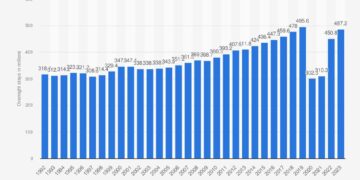Amsterdam Enforces Protest Ban Amid Rising Antisemitic Violence and Public Safety Challenges
In response to a surge of violent incidents involving self-proclaimed antisemitic groups targeting Israeli soccer supporters, Amsterdam authorities have introduced a citywide prohibition on public demonstrations. This decisive action follows clashes during a recent football match between Dutch and Israeli teams, which heightened concerns over public order and safety. The ban reflects the municipality’s urgent effort to prevent further unrest while navigating the complex balance between safeguarding civil liberties and addressing hate-driven aggression.
While Amsterdam is internationally recognized for its progressive stance on freedom of expression, this measure has ignited debate among activists and legal experts about potential restrictions on democratic rights. Nonetheless, local officials emphasize that the ban is temporary and designed to protect vulnerable communities amid an alarming rise in antisemitism across Europe. This approach aligns with similar policies adopted by other European capitals confronting politically charged protests that risk escalating into violence.
New Protocols for Managing Demonstrations: Security Enhancements and Regulatory Framework
To mitigate risks associated with future protests, Amsterdam’s government has outlined stringent guidelines aimed at ensuring peaceful assemblies without compromising public safety. These include:
- Comprehensive threat assessments conducted prior to any authorized gathering;
- Designated protest zones, closely monitored by law enforcement agencies;
- Strictly enforced time constraints limiting demonstration durations to reduce disruption;
- A mandatory permit system, requiring organizers to submit detailed plans well in advance.
This framework seeks not only to prevent violent outbreaks but also to maintain transparency between authorities and community groups planning events. Recent data from European security agencies indicate a 25% increase in hate-motivated incidents linked to political demonstrations over the past year, underscoring the urgency of such measures.
The Ripple Effects of Antisemitic Attacks on Social Cohesion in Amsterdam’s Diverse Communities
The targeted aggression against Israeli fans has deeply unsettled Amsterdam’s multicultural population, exposing fractures within community relations that demand immediate attention. Such episodes foster fear among minority groups while eroding trust across different social segments—threatening the city’s longstanding reputation as an inclusive metropolis.
Civic leaders stress that beyond security responses, fostering mutual understanding through proactive engagement is vital for healing divisions exacerbated by these attacks. Initiatives gaining traction include:
- Dialogue Circles: Facilitated conversations bringing together residents from varied backgrounds to dismantle stereotypes;
- Cultural Exchange Programs: Events celebrating shared heritage through music, art, and cuisine designed to build empathy;
- Victim Support Services: Networks providing psychological aid and legal assistance for those affected by hate crimes.
The success of these efforts hinges upon collaboration among municipal bodies, religious organizations, educational institutions, and grassroots movements committed to restoring harmony within neighborhoods strained by intolerance.
Strategies for Encouraging Constructive Dialogue & Reinforcing Urban Social Fabric
Sustaining peace in urban environments like Amsterdam requires deliberate cultivation of spaces where diverse perspectives can be voiced respectfully. Authorities are encouraged to facilitate platforms such as interfaith forums that highlight common values while acknowledging differences—a method proven effective in cities like Berlin where similar tensions have been addressed successfully.
- Mediation Training Workshops: Equipping community members with skills in conflict resolution enhances empathetic communication during disputes;
- Cultural Collaborations: Joint artistic projects foster inclusivity by celebrating diversity through creative expression;
- Create dedicated task forces combining law enforcement officers with civil society representatives tasked with monitoring events proactively to preempt escalation.
| Initiative | Lead Entity | Expected Outcome |
|---|---|---|
| Community Dialogue Sessions | Nonprofit Organizations | Build mutual understanding |
| Public Safety Coordination Unit | Municipal Authorities | Minimize conflicts during gatherings |
| Multicultural Art Exhibitions | Cultural Centers & Artists | Enhance social unity through shared experiences |
Final Reflections: Navigating Security Concerns While Upholding Democratic Freedoms in Amsterdam’s Evolving Landscape
The recent clampdown on protests following antisemitic violence targeting Israeli sports fans marks a pivotal moment for Amsterdam as it confronts rising intolerance within its borders. By instituting temporary bans alongside comprehensive regulatory frameworks governing future demonstrations, city officials aim both at preserving public order and protecting fundamental rights.
As this situation unfolds further scrutiny will focus on how effectively these policies balance competing priorities—ensuring safety without unduly restricting free speech or peaceful assembly.
Ultimately, Amsterdam’s experience may serve as an instructive case study for other metropolitan areas wrestling with similar challenges amid increasing polarization worldwide.
Continued dialogue among stakeholders remains essential if lasting solutions are sought—ones capable of reinforcing solidarity while combating hatred so no single incident undermines the rich cultural tapestry defining this historic city.












